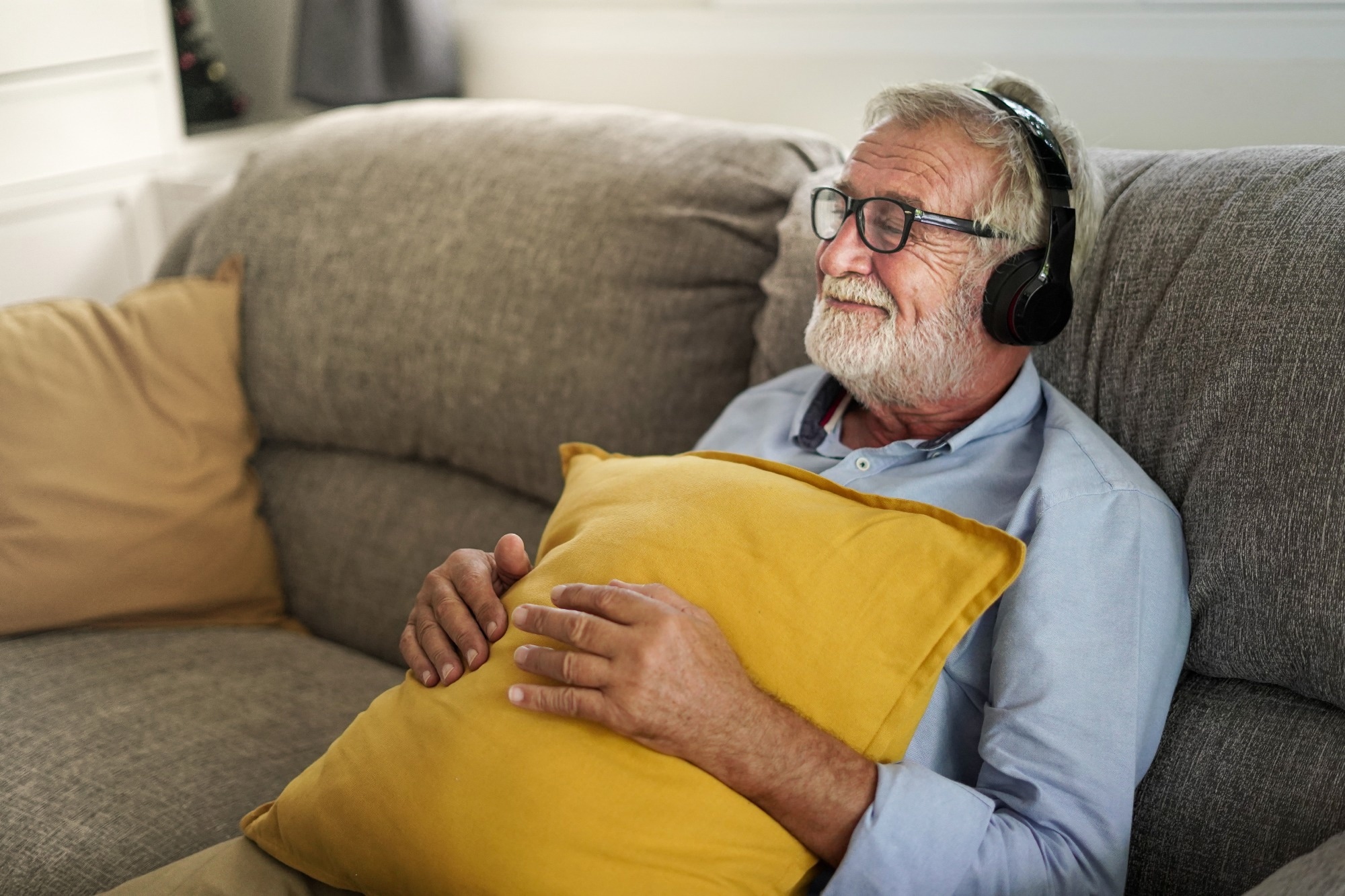Music, light and digital therapies show promise as safer alternatives to risky drugs in relieving dementia-related agitation, so that both patients and caregivers offer a potential path.

Story: Treatment of agitation in dementia – a systematic review. Image Credit: Rasasopittakamol/Shutterstock.com
Millions of people suffer from dementia disorders such as Alzheimer’s disease. The occurrence of fear and need often makes their care more difficult. A systematic review published in the International Journal of Emergency Medicine assessed the efficacy and safety of the current interventions for medicines and non-medicines for agitated patients with dementia.
Introduction
Dementia, including Alzheimer’s disease, affects more than 55 million people worldwide, with nearly 10 million new cases a year. Patients with dementia can scream, complain, accelerate or become violent. These verbal and physical outbursts make the work of a caregiver more complicated.
In addition to causing stress, agitated dementia patients are more likely to have health care needs, resulting in a number of full-time care in health facilities. Managing agitation would greatly benefit patients and their carers.
Historically, dementia patients were mainly treated by physical restraint, often within institutions. Later interventions such as hydrotherapy and sedativa were introduced, although they were often not effective.
Psychotropic medicines have been used to manage agitation. However, they produce deep sedation and increase the risk of illness and sometimes death.
As scientists started to understand the cognitive aspects of dementia, the behavioral therapies, cognitive stimulation and environmental stimuli were used in treatment. Cholinesteraser inhibitors can also be used to reduce cognitive symptoms.
This systematic review analyzed nine clinical studies: three focused on pharmacological interventions (brexpiprazole, mirtazapine, and an escitalopram trial with no outcome data), and six on non-pharmacological therapies such as music therapy, light therapy, digital care programs, and High-frequency repetitive transcranial magnetic stimulation (RTMS) Combined with cognitive training.
The findings indicate that Brexpiprazole demonstrated dose -dependent improvements in agitation, while Mirtazapine did not show a significant advantage and associated with increased mortality. One medication study (on escitalopram) was included as a context, but did not give any results.
Study findings
The assessment included nine clinical studies, three focused on medicines and the other on non-medication therapies. The results suggest that Brexpiprazol improves the agitation, but not on Mirtazapine, which increases the risk of death. One of the three medication studies was a research design without outcome data and was therefore included for contextual relevance, but did not contribute any results.
‘These findings reflect a broader challenge in research into dementia: the limited effectiveness of medicines that mainly relate to symptoms instead of underlying disease mechanisms. “
Currently, most dementia patients are treated with agitation with the help of antipsychotics, antidepressants and other psychiatric medicines. However, antipsychotics can increase the risk of cardiovascular events and death, which emphasizes the need for safer and more effective alternatives.
Non-drug options include light-based, music and digital care programs. These stimulate various physical senses that can lead to an improved mood. The social interaction that is needed for these therapies also promotes better behavior.
Under non-drug therapies, music reduced agitation in almost all areas. Audio books had a number of calming effects in certain areas, but were associated over time with increased agitation, in particular in the subscales of non-staff-oriented physical agitation. This suggests that both the type and the duration of auditory intervention are important to consider.
Personalized music interventions turned out to reduce verbally agitated behavior and increase pleasure, without increasing the physical agitation or negative emotions. The use of repetitive transcranial magnetic stimulation (RTMS) combined with cognitive behavioral therapy reduced all neuropsychiatric symptoms, including agitation, within just four weeks.
Personalized light therapy has been shown to improve behavior, sleep and mood in patients with dementia. This agrees with earlier research into incorrectly aligned biological clocks in patients with dementia, and emphasizes the role of environmental changes in reducing neuropsychiatric symptoms.
Such treatment programs require that the caregiver is involved and is often expensive, which limits their accessibility. Variability in treatment response, influenced by genetic, lifestyle and environmental factors, emphasizes the need for personalized approaches.
Digital care programs such as well -being and health for people who live with dementia (IWHELD) program were also useful during the recent Coronavirus Disease 2019 (COVID -19) Pandemie. This free initiative is intended to support care home staff and to help with care for such patients by ensuring that they receive human interaction and personalized care. The IWHELD program reduced the use of psychotropic drugs without agitating agitation.
The diagnosis remains a challenge, in which many patients are only identified in advanced stages when the treatment is less effective. Current diagnostic tools can be invasive and expensive, so that the intervention is further postponed.
Future instructions
Drugs are currently being developed to eliminate dementia-associated beta-amyloid plaques and tau sticks to prevent dementia. Gene therapy is another potentially practical approach, aimed at dementia-associated mutations.
Virtual Reality (VR) and Brain-Computer Interfaces (BCI) are other research areas using advanced technologies to improve cognitive skills and to facilitate more social involvement.
Conclusions
Although some drugs are often effective, they can provide greater safety risks than non-drug arrangements, which offer significant benefits for efficacy and improve the quality of life. Optimal management may require pharmacological and non-pharmacological strategies, tailored to individual needs.
This study emphasizes the importance of personalized care for people with dementia. Individual patient preferences can change the treatment efficiency of patients and the quality of life.
Although research is going on into therapeutic options for drugs and non-drugs, this review emphasizes the value of integrated and holistic care that combines both approaches. Preventive strategies, including early detection and lifestyle adjustments, also have promising, but require further research.

